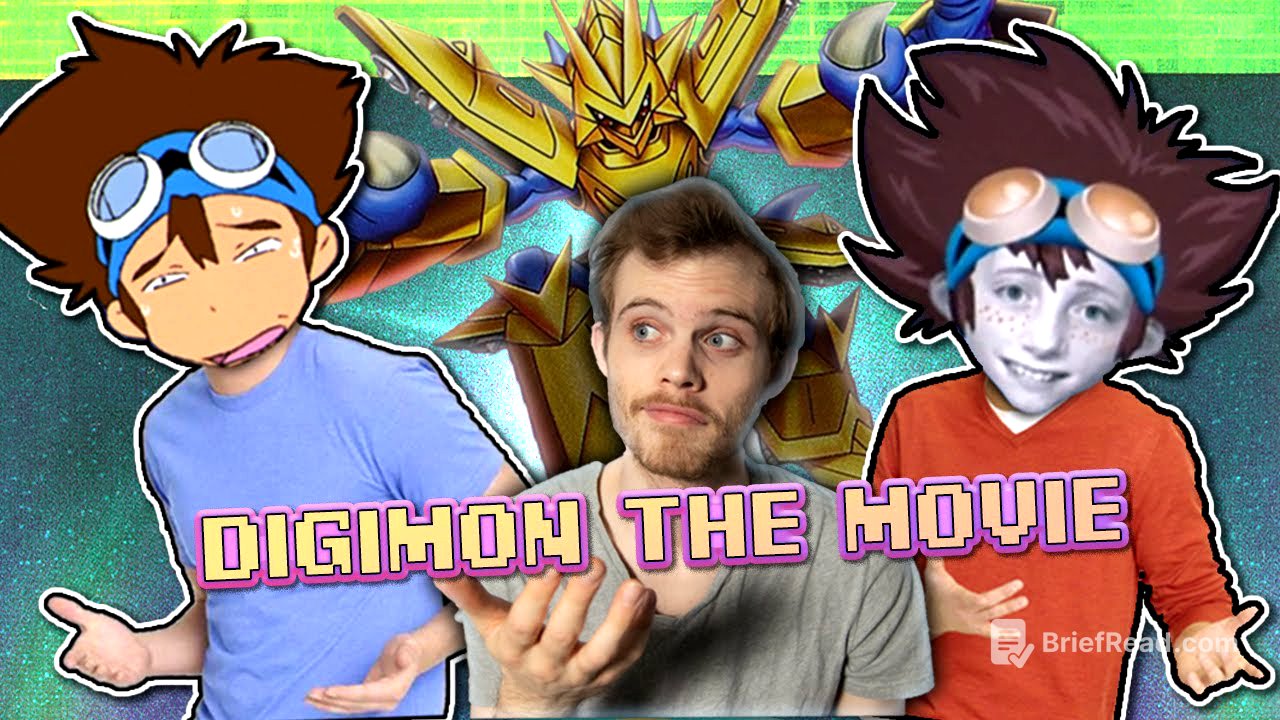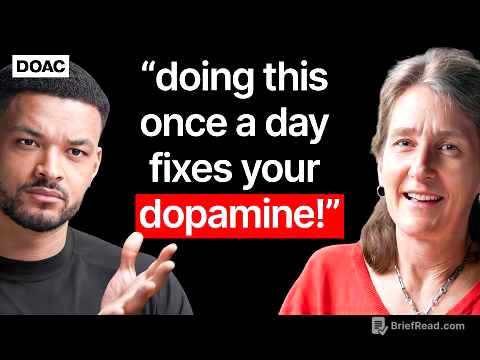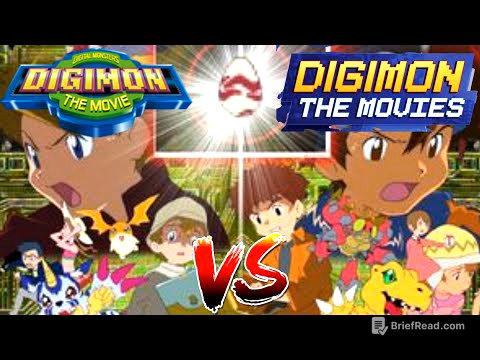TLDR;
This video is a retrospective analysis of the "Digimon: The Movie," examining its unique production circumstances, its content, and its cultural impact. The video argues that despite its flaws and the negative perception it often receives from fans, the movie is a fascinating and nostalgic piece of media that reflects a specific era of Americanized anime adaptations.
- The movie is a compilation of three original Japanese Digimon short films, altered and combined for American audiences.
- The English dub is known for its corny jokes and unique soundtrack, featuring popular artists from the late 90s and early 2000s.
- Despite significant cuts and changes, the movie holds a nostalgic value and represents a unique moment in the history of anime adaptations.
Intro [0:00]
The content creator expresses his fondness for Digimon and revisits his previous negative review of "Digimon: The Movie." He acknowledges that his initial criticism may have been unfair and contributed to the negative perception of the film. He aims to re-evaluate the movie, considering its unique context and the original Japanese short films it was based on.
Let's Get Some Digi Context [3:09]
The original Digimon Adventure anime is described as a children's show that deals with relatable problems in a mature manner. The English producer Jeff Nimoy's blog is mentioned, detailing the production of the Digimon movie from the English dub perspective. Fox initially planned three theatrical releases but consolidated them into one due to the short length of the first film. Nimoy suggested combining the first two films and making the third a TV special, but legal concerns led to including all three.
The Original Shorts [5:48]
The original shorts were released at Toei's anime fair, often shown as double features. The first film, released in 1999, features Tai and his sister Kari encountering a Digimon that evolves rapidly. The second film, "Our War Game," takes place after the original series, focusing on Izzy detecting a Digimon on the internet causing chaos. The third film is a two-part OVA based on Digimon Adventure 02, introducing Willis, an American character with twin Digimon, one of which is infected with a virus.
The Unmentioned Fourth Segment [13:02]
The video addresses the inclusion of the four-minute "Angela Anaconda" episode at the beginning of the Digimon movie, which was commissioned by Fox. The inclusion of this segment was not a decision made by the Digimon team or the Angela Anaconda team, but something Fox wanted for some reason. The content creator shares a story about a kid who threw a temper tantrum upon seeing "Angela Anaconda" before the Digimon movie, leading to his parents' divorce, but points out that the short clearly indicates the upcoming Digimon movie.
Making This Into One Story [15:37]
The only character with a prominent role in all three films is Tai's sister, Kari, who narrates to help the audience understand the timeline and locations. The film cleverly connects the three stories by name-dropping Willis and explaining the virus affecting Kokomon is the same one that created the demon spider in the second film. Defeating Kokomon is presented as ending the havoc caused by this virus.
The English Stuff [17:20]
The English dub of Digimon is known for its corny jokes, which are highlighted in the film. The dub added a subplot about Tai's mom being a bad cook, which becomes a cause for Izzy's emergency trip to the bathroom during a tense battle. While Kari's narration can be annoying at times, the movie uses a brand new score and soundtrack, including a cinematic rendition of the English Digimon theme.
The Original Soundtrack [20:46]
The original soundtrack for the Digimon movie is described as a nostalgic time capsule of 2000s American kids' movies. The more insidious nature of the film comes with the cutting they had to do to get the run time down. The final film had over 30 minutes cut from its hour run time, including the subplot about the original kids getting captured.
The Film's Messiness [22:45]
The official poster communicates the film's messiness, featuring a character that doesn't exist and design elements from different parts of the franchise. As a direct adaptation of the original movies, this is not what you would call faithful. The content creator appreciates the quality of the original movies, to say that he doesn't like Digimon the movie is to reject his Digimon experience which is what makes it nostalgic for him as a kid.
Conclusion [24:31]
The content creator concludes that "Digimon: The Movie" is a fascinating, messed-up, Americanized version that could only have existed at that specific point in time. He doesn't feel the need to protest it and is happy it exists so it can be discussed. He expresses a desire for the originals and even the Digimon movie to be released legally in the states.



![[Movie Recap] Top Assassin Seeks Revenge on the Boss Who Betrayed Him](https://wm-img.halpindev.com/p-briefread_c-10_b-10/urlb/aHR0cDovL2ltZy55b3V0dWJlLmNvbS92aS9ET0tVSDhwZ09NWS9ocWRlZmF1bHQuanBn.jpg)





